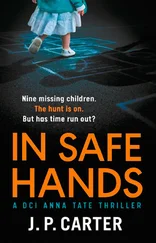“I haven’t done anything for my art class,” she said.
B was looking impatient.
“Well,” she said, “do you think I should destroy it?”
“Why would you ever do that?” I asked.
Her drawing was better than any other thing I had ever done.
“I should stop pining,” she said simply.
But I wasn’t sure I wanted to see what happened when she was no longer fixating on her ex and her ex alone. All that time she spent searching out new information about him on the Internet, the energy she sank into watching over where he shopped for groceries, whose parties he went to, which girls he talked to and for how long. I didn’t think I wanted that loose energy coming into contact with C. I looked at her and said: “No, it’s beautiful. You need to keep it. You should show it to him and see what he says. Don’t give up.”
B looked hesitant.
“That last time we were over there, when he attacked us with the soda?” she said. “He texted me after and said next time he’d call the cops. I think he was serious. I’ve seen him call the cops six or seven times. I was there when he called the cops on his ex. They broke up, but he found out that she was still living in this shed in his backyard.”
“Don’t give up,” I said to her. I sounded confident.
ON TV, A LATE NIGHThost was interviewing Jonathan Winker, a DDD victim who had recently returned himself to his own life. Winker, a round-faced man in a plaid shirt buttoned up to the neck, sat across from the host, whose comically large desk seemed to be made of several different kinds of wood. So, Jonathan, buddy — is it good to be back? asked the host. The audience laughed. Well, said Jonathan, initially, no. The audience laughed again. I don’t know if you’ve ever had amnesia, Jonathan continued, but it is really a doozy. Imagine if a bunch of strangers surrounded you while you were eating a hot dog at the Freezy King in the mall, and they started grabbing you and they wanted to take you home. And, like, you looked around at all the other people sitting in the food court, and they were looking back at you like they were very specifically not going to help? And then a policeman came and told you that even though you were scared, and hungry, and all you wanted was to stay near the Freezy King where it was safe, you had to go with these noisy new people, because they were your family? The audience laughed.
Jonathan’s eyes were tiny as he spoke. Well, let’s just say I’m in a better place now, he said. The host kicked back in his swiveling office chair, then lurched forward to lean conspiratorially over the desk toward Jonathan. And why is that, friend? asked the host, smiling out at the cameras and then turning his face back toward his guest. I’ve really turned it around, Jonathan said proudly. I was given some reading material that explained to me what exactly my problem was. My body was rejecting the falsity that had infected my life, I was trying to eject it, like the immune system does, only I didn’t know enough to tell which parts were false and which were true. So that’s what I’ve been working on. The host nodded mildly toward him. I found religion, Jonathan said, grinning.
I looked over at C, who had emptied two whole cans of syruped mandarin oranges into a red plastic bowl and was stirring them with a spoon. In the teeming red bowl, the little orange segments looked like the bodies of dozens of sugary, gelatinous shrimp. “Does this need condiments?” he asked. I couldn’t tell if he was talking to me or to himself.
“You know,” I said, “I forgot to tell you. B didn’t just cut her hair. After she cut it, she gave it to me. This whole thick rope of it. I have it in my room. It’s creepy. It’s the size of my arm.”
“That’s interesting,” said C. “What does it feel like?”
“It feels weird,” I said. “It feels like she’s trying to turn me into her. Like she’s slowly going to start shifting her stuff into my room and taking my things into hers. Like I’m going to wake up with a wig made of her hair taped to my head or something. And even though it’s clearly not normal, I know if I try to talk about it, she’ll just find a way to make me feel bad for something, like she has to do it because I’m not there for her.”
“I meant how does it feel to hold. The hair,” C said.
“Oh,” I said.
“What?” he said. “There are no wrong questions.”
“Don’t you think that’s a really weird thing to do?” I asked.
“I was just trying to be an interested listener,” he said affably.
We were silent for several moments. On TV, a commercial for a dessert-flavored toothpaste that came in lemon meringue pie and chocolate pudding flavors. Shouldn’t the last thing you taste at night be the sweetest thing? asks a motherly voice that is also straining to sound somewhat naughty.
“You’re a great listener,” I said. “I meant, don’t you think B is behaving weirdly? I mean, who gives someone a part of their body as a gift?”
“Oh,” he said. “I think a lot of relationships with females have weirdness built into them. Like with mothers. And sisters, and friends. In that way, weirdness is normal. So what’s happening is normal.
“Also, the Victorians,” C added. “They used to give hair and nail clippings as mementos. And also Catholic saints.
“This is about how you relate to the world,” C said.
“Maybe it’s about how the world relates to me,” I said back.
“Let’s not have a fight,” he said.
I said: “Okay.”
C shoveled his spoon into the bowl of syrupy fruit. It made a wet, nuzzling sound. He dug up a spoonful and extended it toward my mouth, as though I were an infant. The tip of the spoon butted against my closed lips. After a few moments he shrugged and stuck the heaping bite into his face. He chewed and I heard the little mushy bodies break against his teeth. He swallowed wetly.
“What do you want to watch?” he asked.
The television was tuned to a shopping channel.
I thought for a while and then I said: “Commercials.”
He flipped through the channels until he found a game show, one that he knew I hated. In this game, couples in long-term relationships were brought on for a series of challenges designed to test how well they knew each other or, more specifically, how well they were able to recognize each other. One person was made the player, while the other was taken backstage. The first level used photographs: the player sat in a chair and saw a series of photographs of the backs of people’s heads, the backs of their hands, the undersides of their feet, etc. Mixed in among these similarly lit, similarly photographed pictures were ten photos of the loved one’s body parts. The player who could identify at least five of the ten photos belonging to his or her partner would receive a cash prize and pass on to the second level.
The second level was a sort of musical number, in which every dancer but one was a trained actor disguised as the player’s girlfriend, or husband, or whatever. As the performers danced their way through the song, the player’s task was to point at them one by one when the player was certain that that performer was not the person the player loved, at which point the dancer would leave the stage. By the end of the round, only two people would be left. The player would have to choose between them before the closing bars of the song were played, pointing at them and calling out, That’s my partner! which not coincidentally was the name of the show. At that point there was usually some sort of interrogation, where the one chosen would be brought to the front of the stage, his or her parts parceled out to the waiting swarm of cameras, each of which took hold of a nose or eyebrow or twitching mouth and sent it up to the large screens above the stage, where every feature looked warped, lonesome, unbelonging. With the different screens tuned to slightly different saturations, the pieces lacked the coherence of a single source. Each was strange and solitary — but familiar, too, a thing stripped of particularity and made example. And then the dashing host, dressed in the outfit of a federal court judge, would ask the player over and over again, Are you sure this woman is your wife? Are you one hundred percent sure? Are you one hundred and ten percent sure? I had seen a player give up at this stage, wandering abstractedly offstage to join the audience.
Читать дальше




![Ally Carter - [Gallagher Girls 01] I'd Tell You I Love You But Then I'd Have to Kill You](/books/262179/ally-carter-gallagher-girls-01-i-d-tell-you-i-lo-thumb.webp)







